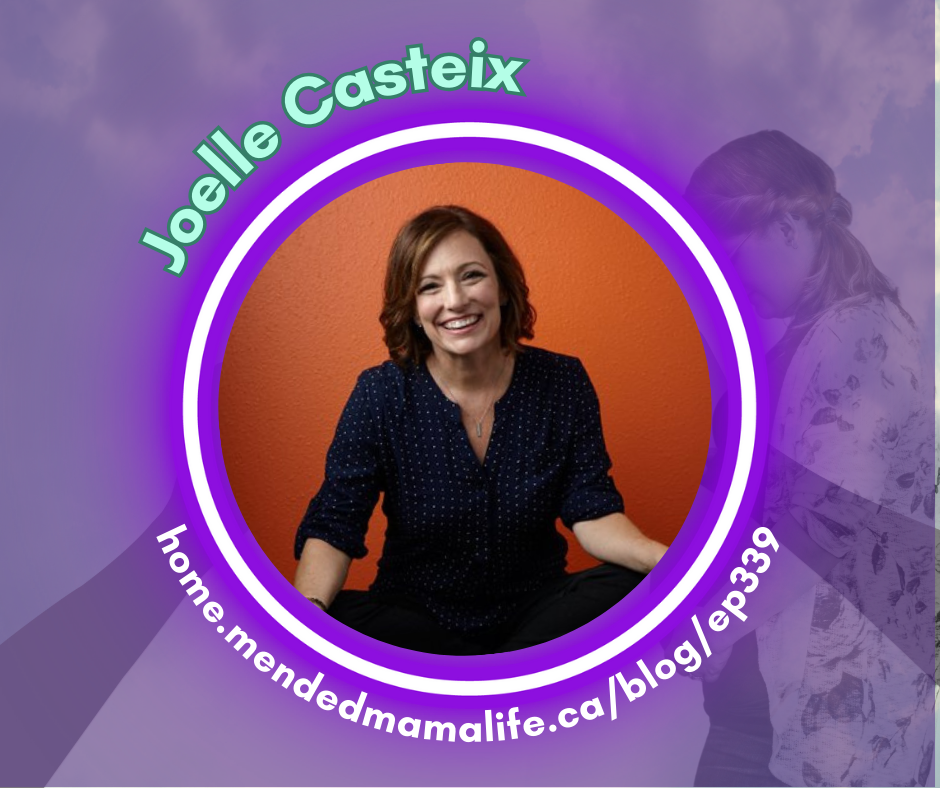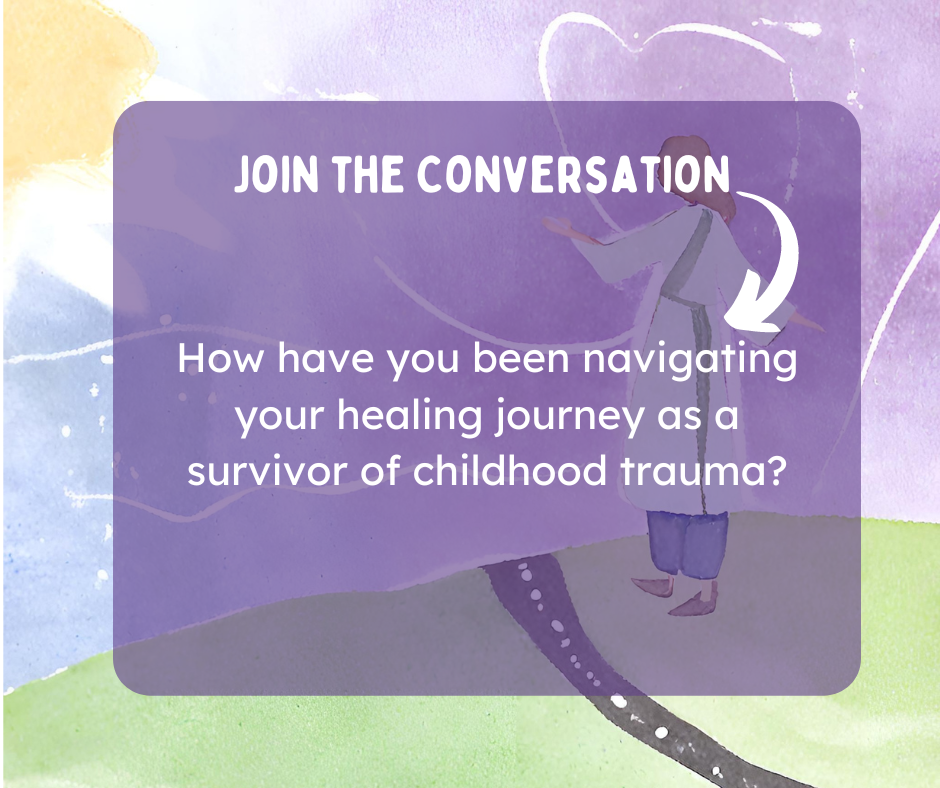Parenting as a childhood sexual abuse survivor

In today's discussion, we delve into how to transform trauma into a powerful tool for self-empowerment with Joelle Casteix. Joelle's journey, marked by her experiences as a survivor of child sexual abuse, is a testament to resilience. She's turned her painful past into a force for change, advocating for other survivors and working to reform laws around this issue. In this conversation, we'll detail just how Joelle has managed to bravely confront her past and use it to fuel her passionate advocacy.
1. How can survivors of child sexual abuse find support and empowerment following their experiences?
As survivors of child sexual abuse, it cuts deeply. The road to recovery might seem endless, and at times, it can feel as though you are treading a path alone. Certainly, the experiences you've faced are personal and unique, however, you're never alone in this journey. Many have walked similar paths and can provide guidance. I want you to know that healing is possible. It begins by finding and accepting support from others. This can be in various forms such as counseling, joining a survivors' support group, or finding an advocate that can help voice your experiences, rights, and needs. During our conversation, Joelle Casteix, a survivor herself, shared some profound insights. When we look at her life, she has not just survived, but empowered herself to the extent that she has become a strong advocate for other survivors. She has been instrumental in helping others navigate the challenging path towards recovery. Joelle conveyed the transformative power of speaking out. She stressed the importance of breaking the silence, an act which in itself can be both therapeutic and vital for personal growth and healing. Joelle's journey underlines the power every survivor possesses — the power to transform a devastating experience into a force for change and advocacy. This conversation with Joelle resonates deeply because it demystifies the notion that survivors of child sexual abuse are alone. They are not. The answer to how survivors can find support and empowerment lies in connection with others — in shared journeys and collective strength. Building support networks, reaching out for professional help, and learning from the experiences of others who have walked a similar path can provide much-needed strength and guidance. It is through these connections that survivors learn they are not alone, that their feelings are valid, and their experiences do not define them. These are essential steps towards healing, self-empowerment, and eventually, towards transforming their narrative from victim to survivor — and even beyond that, to advocates for change, just like Joelle.

2. What are some effective ways to prioritize self-care and find balance for mothers who are survivors of trauma?
The journey of motherhood is full of challenges and joys, but for survivors of trauma, there's an added layer of complexity. Managing the demands of being a mother while coping with past trauma can sometimes feel overwhelming. Prioritizing self-care isn't merely a luxury or a self-indulgent act, but a fundamental necessity that enables mothers to function at their best and provide healthier experiences for their children. Achieving balance in one's life isn't about equal distribution of time and energy, but rather understanding and respecting your limits and needs. Prioritizing personal healing through therapy or counseling, advocating for your needs, and maintaining a consistent self-care routine is crucial. It's about filling your cup first so you can show up as your best self for your kids. In the podcast, Joelle Casteix exemplifies this approach to self-care and finding balance. She opens up about her trauma and the hardships she had to face as a survivor and a mother. However, it's apparent in her story that she isn't defined by her past. Instead, she harnessed her experiences as a force for change and healing. As a champion for survivors, Joelle emphasizes the significance of seeking help, speaking out, and prioritizing self-care above all. Joelle's personal journey mirrors the struggles and triumphs of many trauma survivors out there. Joelle’s resilience in the face of challenges is inspiring. It's also a reminder that healing is possible when we become advocates for our wellbeing. Why is understanding the importance of self-care and finding balance vital for mothers who are survivors of trauma? Surviving trauma can influence every aspect of a person’s life, including parenting. Mothers with a history of trauma often struggle with feelings of guilt, fear, anxiety, and difficulty in managing stress, which in turn can affect their children. By focusing on self-care and seeking assistance when necessary, mothers can foster a healthier connection with their kids, provide them with a better understanding of self-care, and create a more stable, nurturing environment. For mothers who are survivors of trauma, knowing that there are effective ways to prioritize self-care and find balance can be incredibly empowering. It opens the door to healing and allows them to engage in parenting from a place of wholeness and strength, rather than pain and fear. Prioritizing self-care isn’t about being selfish; it’s about functioning at your best capacity to take care of your children while tending to your own needs and healing.
3. What changes in laws are necessary to better protect survivors of child sexual abuse and hold perpetrators accountable?
When discussing child sexual abuse and ways to prevent it, one area that requires attention is the legal framework. Current laws don't always fully address the depth of child sexual abuse issues, often falling short in protecting survivors and holding perpetrators accountable. This is especially true considering that these crimes frequently remain unreported due to victims' fear, shame, institutional cover-ups, and, in many instances, the imbalance of power. Moreover, even in cases that do come to light, survivors often find themselves enmeshed in the criminal justice system's labyrinth, adding to their trauma. During our conversation with Joelle Casteix, her experiences shed light on the systemic failures that allowed her high school teacher, also her abuser, to go unpunished and her suffering to continue in silence. Joelle emphasized the need for change in laws and institutional regulations. Notably, she highlighted the need for changes in legislation to allow survivors to come forward and seek justice, even when the criminal statute of limitations has passed. This circumvention can bring significant relief to survivors who may have needed years to gather the strength and resources to report their abusers. Beyond that, Joelle's call for explicit, written policies in schools regarding suspected child sexual abuse showcases the necessity of preemptive measures in institutions frequently targeted by offenders. Why does this matter for readers like us? Every conversation around child sexual abuse invariably circles back to the need for societal systems and structures that effectively deter such heinous crimes and deliver justice to those affected. Changes in laws to better protect survivors and hold perpetrators accountable would mean that survivors wouldn't have to wait decades to make their voices heard, and the guilty wouldn't be shielded by time or their position of power. Moreover, it encourages ongoing conversation, ensuring that the issue remains in our collective consciousness rather than being brushed under the carpet after momentary outrage. Therefore, investing our efforts into advocating for legal changes is a significant step in creating a safer world for our children. This collective effort will not only send a strong message to would-be offenders but also empower survivors to step forward, secure in the belief that justice, though delayed, will not be denied.
4. How can mothers nurture their children and themselves simultaneously to find healing in every interaction?
Motherhood can often feel like a balancing act, particularly when the need to nurture their children is combined with the requirement to heal oneself simultaneously. However, by viewing motherhood as an opportunity for growth and self-reflection, mothers can initiate an inadvertent healing process. Specifically, as we look at Joelle Casteix's journey, we glean the understanding that motherhood, for her, was the platform for re-building her life. She endorses the perspective that the very act of nurturing her child provided her with a deep sense of inner fulfillment and immensely aided her in her healing journey. She poignantly shares the joy she feels when she looks at her son's happiness and contentment, and how this acts as a source of personal healing for her. Joelle's own experiences offer insights into how mothers who have faced abuse or trauma can positively channel their energies towards their children while simultaneously healing themselves. Understanding the connection between personal healing and motherhood is crucial. Parenting does not require one to sacrifice themselves for their children entirely. It's about achieving a balance between attending to their needs and ensuring your emotional wellbeing. This is imperative, as your mental health directly impacts your ability to care for your child. Joelle's story is a testament to the fact that motherhood, with all its challenges, can, indeed, serve as an avenue for personal growth and healing. By nourishing yourselves emotionally, mentally, and physically, you can effectively care for your child, thereby fostering a nurturing environment in which both you and your child can thrive.
5. What kind of impact has advocacy work made for survivors of child sexual abuse and how does it aid in their journey towards healing?
The impact of advocacy work on survivors of child sexual abuse is profound and multi-faceted. It can create meaningful change, both at the individual level and within the broader community. Advocacy directly supports survivors, providing them with the tools and resources needed to navigate their healing journey. It also works to change societal perceptions and eradicate the stigma often associated with this type of trauma. Advocacy efforts can help survivors rebuild their self-esteem, regain control of their lives, and can also foster a sense of purpose and empowerment. During our conversation, Joelle Casteix bravely shared how her personal experience as a survivor of child sexual abuse has led her to become a driven advocate for others. From working tirelessly to change laws to enable more survivors to come forward, to providing support and empowerment to survivors across states, Joelle's advocacy efforts stem from her own resilient journey of healing and transformation. Her commitment to bringing positive change is an inspiring testament to the direct impact advocacy work can have on fellow survivors. Joelle’s dedication and efforts highlight the importance of speaking up, seeking help, and lending a helping hand to those who need it. Now, let's reflect on why the answer to this key question is pertinent. Survivors of child sexual abuse often grapple with feelings of guilt, shame, confusion and fear. The journey towards healing can be incredibly challenging and complex, fraught with both internal and external obstacles. The empowering nature of advocacy work not only supports this journey but can also help survivors realize they are not alone. At a societal level, advocacy helps to chip away at the culture of silence that often cloaks this issue, pushing for necessary legal change and fostering more supportive, informed communities. Furthermore, witnessing fellow survivors turn their traumatic experiences into an impetus for change can serve as a potent source of inspiration. The collective efforts of advocates, alongside individual healing, can contribute to an environment where survivors are met with understanding and acceptance, rather than judgment or disbelief.
The importance of understanding and addressing child sexual abuse cannot be overstated, especially for survivors who are seeking empowerment and healing. This dialogue with Joelle Casteix offers invaluable insights that can help you navigate your journey towards self-empowerment. The key issues we explored, including the importance of self-care, recognizing personal growth, and accessing the right resources, are all crucial in achieving a sense of healing and empowerment. Remember, it's okay to prioritize your needs and seek help when necessary. You've shown immense strength by surviving, and now it's time to harness that strength for your healing journey.
Connect with Joelle: http://www.casteix.com

Never miss a blog again!
Subscribe to get updates in your inbox!
Thank you for subscribing!
Have a great day!

